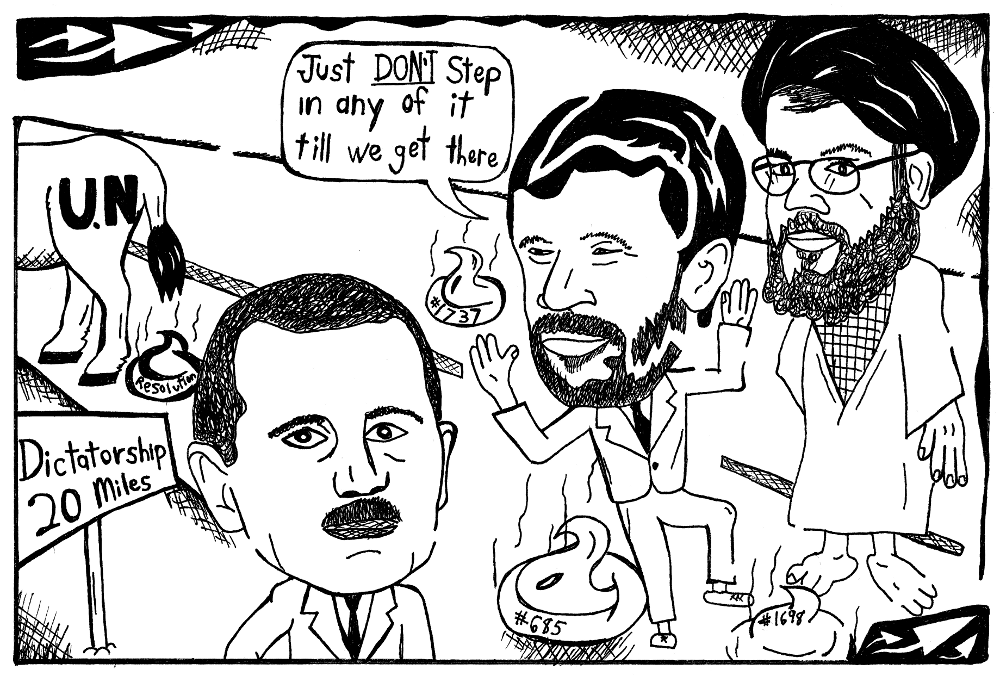The Legend Unmasked
"Since [Egypt's] Gamal Abdel al-Nasser enchanted Arab youth in the 1960s, no political leader -- and especially not a Shia -- has captured as many hearts and minds of Arabs and Muslims. He has become an Arab Che Guevara, who personifies an Islamist resistance struggle. "Iran sent its Revolutionary Guard Corps members to Lebanon in the 1970s to foster and inculcate in Lebanese Shiites a new kind of fanaticism. It was the new cult of martyrdom, of pride in and honour attained by suicide bombings. This was before the Party of God even knew it was the Party of God, when adherents to fanatical Islamism listened to the messages sent to them by Supreme Leader Ayatollah Ruhollah Khomeini and were fixated by them.
Tobias Thiel, Middle Eastern politics expert, London School of Economics
"No one is attacking Lebanon. They say they are defending the country against Israel. But they are not defending anyone. This is a lie.
"The war in Syria could spill over in a larger scale to Lebanon.
"They are a state within a state. They are not democratic. They bully people. If you disobey, they punish you. They are like the drug cartels in Colombia, or like the fascists in Italy."
Aurel Braun, Harvard University professor of government, visiting professor at University of Toronto
"Hezbollah is much more vulnerable because of that. That has contributed to them looking weak. They looked almost invincible, but now they've had two major operations here that killed many people. Hezbollah doesn't benefit from that kind of thing.
"A young, previously secular, Lebanese Shia woman, clearly places Nasrallah in the domain of the semi-divine, when she is quoted in the German weekly Der Spiegel as saying, 'Nasrallah's not an ordinary person. He's something from God to us'.
"He is incorruptible. He lives like he preaches He is different from most political leaders in the Middle East in that sense.
"Most Islamic leaders would talk about sending people to sacrifice themselves, but rarely do they send their own sons. And in 1997, Hadi Nasrallah died in the battlefield in Southern Lebanon.
"They will do what Iran tells them to do. They will not act independently, they will act in consultation. Terrorism is a very small, concealed part of Hezbollah. It's released only on very special occasions. It's really an Iranian intelligence operation with the Iranian Revolutionary Guards Corps.
"He's lost the halo. All the good image that Nasrallah had from the 2006 war is dissipated. Today Sunnis hate him.
"It will probably take a conflict and probably against an external enemy like Israel for it to be affected. But the big thing for Nasrallah is that the pipeline would survive between Iran and Syria into Hezbollah. And that is more important to him than his own popularity."
Magnus Ranstorm, Hezbollah expert, research director, Swedish National Defence College
This was a time when Palestinian Shia had made Lebanon their home after 1948, and whose presence in Lebanon fed a sectarian turmoil and resentment against their unsettling presence that helped to turn the country upside down and inside out. When cross-border raids by Palestinian gunmen into Israel convinced Israel finally that it had no option but to invade Lebanon and rout Yasser Arafat and his Fatah PLO and the PLFP of George Habash.
And this was the era of Hezbollah, when the IDF headquarters building was blown up and over 50 Israeli military personnel died, and no one knew how or who was responsible, and when U.S. military also had a taste of the very same medicine, when a powerful explosive blew their headquarters to smithereens with the loss of American and Lebanese lives. Leading both the U.S. as part of a multinational UN peacekeeping force and the occupying IDF (and the occupying Syrian troops waited for both to leave) felt compelled to leave the charnel house that was Lebanon.
When the IDF did leave finally, Hezbollah took the credit, that valorous guerrilla militia so beloved of God, and a chattel of Iran making headway in their struggle for Islamic revolution in the region and their vision of an eventual Caliphate in which Iran would reign supreme. Hassan Nasrallah is so brave that he himself did not venture on any suicide missions or guerrilla attacks, but he did sacrifice his son in his vision of greater glory to come.
He portrayed himself as invincible, yet he was not to be seen in public. His public addresses took place through videos when he would address his adoring public. In fear for his own life, he was extremely shy of public appearance, and preferred to bunker himself down safely in places that were kept secret, to avoid the possibility of assassination. Now, under orders from Iran, he has helpfully assassinated his own reputation and sacrificed the security and stability of Lebanon and Lebanese citizens.
The days of his "divine victories" appear to be dated. During the 2006 Israel-Lebanon conflict, the international community through the UN pleaded with Israel to cut short its incursion into Lebanon, and Israel complied. This, Nasrallah declared, was yet another of the "divine victories" that Islamist might prevailed against the enemy. Much like Syria today is crowing at its "victory", thanks to the cunning manoeuvres of its great good friend Russia, in keeping American military might from knocking at Bashar al-Assad's door.
Hassan Nasrallah, infiltrated and well ensconced through Hezbollah's "political wing" in Lebanese government, has betrayed handily his obligation to Lebanon for sheltering, albeit unwillingly, his violently Islamist terrorist/jihadi militia all these years. He has placed Lebanon in an intimidated situation where Sunni Muslim Islamists whose viciousness matches that of his own militias now threaten the Shia citizens of Lebanon.
Little wonder they now curl their lips in disdain when speaking his name.
 |
Labels: Conflict, Hezbollah, Islamism, Lebanon, Syria, Terrorism

<< Home